Cultivating A Legacy
Once quoted as relishing the sizzle of developing the skydome, chuck magwood has transitioned to a different pace of life on a farm and vineyard. learn how the vigneron defines prosperity now
Words by Alyssa Schwartz
.jpg)
It’s hard to imagine the toronto skyline without the rogers centre or skydome, as die-hards still call it even 19 years after the iconic stadium was renamed. As such, when the Dome is your professional calling card, as it is for former real estate developer Chuck Magwood, you don’t really need a resumé.
“I don’t even know if I have one. I’ve never really applied for jobs in a traditional sense,” he laughs. And yet, from building malls to developing the baseball park that helped reimagine downtown Toronto to now cultivating vines in Ontario’s most of-the- radar wine region, Magwood’s has been a path that is as thoughtfully constructed as the city’s entertainment zone.
“I was available and intrigued,” recalls the former developer, who was given an interview by the Dome’s hiring committee, shared his ideas about the challenge of building a new stadium and was surprised to be ofered the job a day later. For some, the allure might include building their own brand. But for Magwood, it’s about a love of building—period.
“The last thing I’ve ever wanted to do is have a proole,” he says. “I think we’re all wired a little diferently. For me, I want to see the fruits of my team’s efforts. I want to know for all my trying and working I have something to show for it. I love looking back and seeing what I’ve done, knowing it wasn’t easy, but wow, that was worth it. It’s like having a good workout or going for a long run. You want to feel good for what you’ve done.”
Magwood’s list of accomplishments indeed checks all the boxes. Originally trained as a lawyer, he shifted focus early, transitioning to a career that satisfied his drive.
“Maybe mine is a story of somebody that had a fairly traditional successful business career in Toronto, with a great family in a great neighbourhood, who was fortunate to be in the times we were in,” he muses. “I left the legal profession after just a couple of years to move into the real estate world. I got involved with a company that built regional shopping centres initially, and then we moved into revitalizing downtowns.”
When the opportunity arose to get involved with building the Dome, Magwood couldn’t resist. “I was brought on as CEO for the stadium corporation right at the beginning,” he recalls. “So we really had to lead the way for the whole thing: selection of the site, selection of the architects, the contractors, the design, construction, negotiating major tenants, leases, finishing the project and opening it to the public.”
But Magwood is a builder, not a manager. So after the Dome opened its roof in 1989, he was ready to move on.
“From there I was asked by OMERS pension funds to set up a separate real estate entity called OMERS Realty Corporation, the focus of which was to increase the percentage that OMERS held in real estate,” Magwood says. “It was a very interesting time. A lot of people forget that in the early 1990s, we were in a deep real estate recession where so many successful companies went bankrupt. The real estate industry was decimated—interest rates went through the roof, and people saw their home values fall by as much as 50 percent in Toronto. It was a tough time, but it was a very opportune time.”
After that, he dabbled in internet startups and other ventures before making his next move—one that might seem surprising for a guy who had always been immersed in such large-scale projects.
“Our family has always had a farm in the country,” he says. “And more and more, as I got to be in that middle age in life, in your late 50s, early 60s, I started looking for other ways to find joy and happiness.” That desire brought the family north—to a plot of land close to the shores of Georgian Bay—and to a more hands-on type of building than he’d done in the past.
“For me, it was a form of relief to work physically,” he says. “It provided me with a kind of outlet, not only for physical well-being and fitness but for mental health and emotional happiness. This focus of living outside and learning to fix things and grow things and take chances and fail—fail a lot and learn through that—that’s really been the latest chapter.”
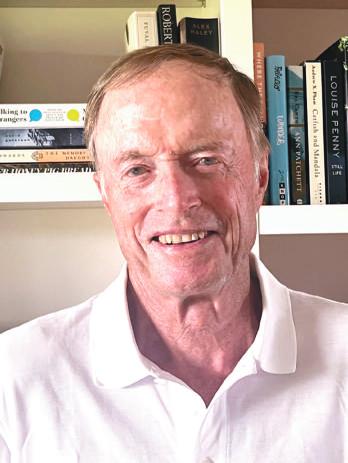
True to form, the roots Magwood started planting after buying his farm in 1993 have grown into something much larger. Located in the Creemore Hills, Four Wheel Farm now totals 250 acres of vineyard, organic gardens, maple sugar bush, and more.
“When we came here, we looked around at the things that thrived and saw wild grapes,” says Magwood. “They grow over everything—they envelop the trees and weave their way through the fence lines. So a little light bulb went off in my head—if those grow so well, why can’t we plant vines for wine grapes?”
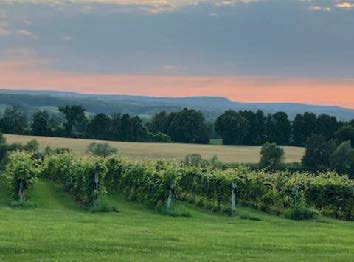
As he’d learned in his past life as a developer, Magwood began to do some digging. “I found a guy online who was promoting something called hardy vines—vines that were winter hardy. That kind of intrigued me and got me infected with this desire to explore and move into new ground. Because no one was doing that up here. Making wine was a totally foreign thought.”
First, Magwood planted hybrid grapes like Frontenac and Maréchal Foch. When those took off, he expanded into European vinifera—grapes like pinot noir, pinot gris, and chardonnay. “I see it as a high-risk scene where climate change is providing new challenges, and also new opportunities,” he says. “It’s all very neat, but the techniques are pretty high maintenance.”
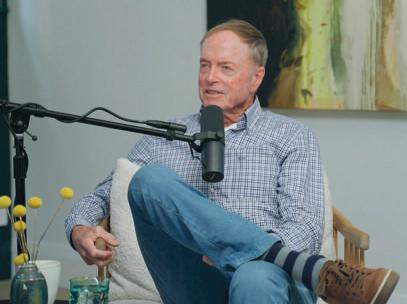
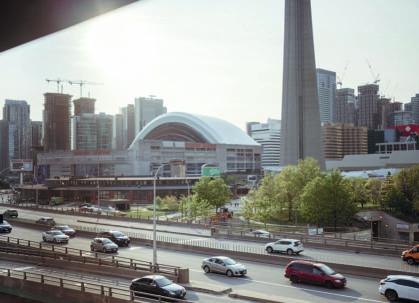
To that effect, Magwood is ready to take a page out of his SkyDome playbook and hand over the reins. He’s partnered with The Roost Wine Company, a local small-batch winery that makes low-intervention wines with Magwood’s grapes, and his family is readying to sell his farm.
“Mostly because of age, not because I don’t love it,” he clarifies. “When I think about the similarities of these chapters, both involve risk and having the courage to take on something new. They are both driven by a lot of adrenaline. That’s a good thing, but it’s hard on you. You need to start finding your kicks in different ways, with a different pace.”
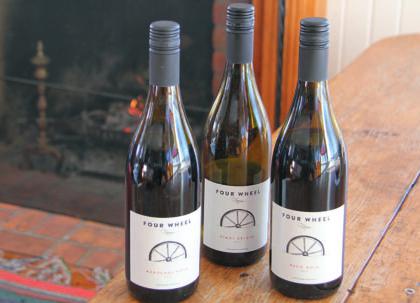
BEYOND THE BLUEPRINTS
Get to know Chuck Magwood even more in the second episode of Beyond the Blueprints with Cailey Heaps, a podcast by Heaps Estrin. Magwood talks more about the SkyDome, his farm and how, according to him, “the best structures we can build are the lives we live.” Listen now wherever you get your podcasts.

Leave A Comment